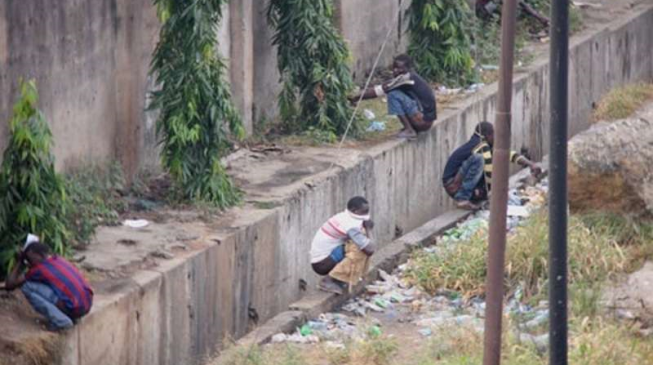More than 46 million Nigerians are said be practising open defecation, Federal Ministry of Water Resources has stated, saying that federal government plans to eliminate it by 2025.
Suleiman Hussein Adamu, the Minister of Water Resources, stated this during the official celebration of local government wide open defecation free status by Dass local government area under the Sanitation, Hygiene and Water in Nigeria (SHAWN) project held at the Waziri Mazadu primary school at Dass in Bauchi state.
Adamu, who was represented by Musa Ibrahim, the Permanent Secretary, Federal Ministry of Water Resources, said more than two third of the Nigeria population were without access to basic sanitation facilities, adding that efforts in time past to address the challenge yielded minimal results.
He commended UNICEF and the UK aid for supporting the implementation of the SHAWN project in Nigeria, which he noted had been implemented in 70 local government areas of the six states of Bauchi, Benue, Katsina, Zamfara, Kaduna and Jigawa, adding that the project had been extended to 100 local government areas in eight states, with the addition of Kano and Yobe states in 2017.
“It is, therefore, worthy to note that Dass local government area is the first among the implementing local government areas in the state and the second local government area in the country to achieve this notable feat.
“A glimpse of Water, Sanitation and Hygiene WASH sector in Nigeria through WASH diagnostic report by the world bank in 2017 shows that while the country made significant progress in the provision of safe water supply in the past decade which contributed to socio-economic development and poverty reduction in the country, the same cannot be said of sanitation and hygiene,” the minister said.
Adamu said the federal government had developed the national open defecation road map aimed at eliminating Open Defecation by 2025, adding that the ministry was providing sanitation and hygiene facilities in public places across the country, with special consideration for the North East as part of the ministry’s response to the emergency situation in the area.
In his address on the occasion, Garba Magaji Babaji, the Permanent Secretary, Bauchi State Rural Water Supply and sanitation Agency, said the SHAWN project built the capacity of stakeholders at the state and local government levels and adopted the local government wide approach in the Community lead Total Sanitation Implementation, CLTS.
Babaji said all the communities committed to construct and use latrines not only at household level, but also in market, motor parks and places of worship, while the project, in collaboration with the state government, provided facilities in schools and health centres.
Idrisa Yawe, the UNICEF Officer in-charge Bauchi D Field office, said that the Bauchi state government demonstrated commitment by releasing counterpart cash contribution for the provision of water, Sanitation and Hygiene facilities, adding that the state government has committed to releasing 25 million per month from August 2016 to March 2018.

